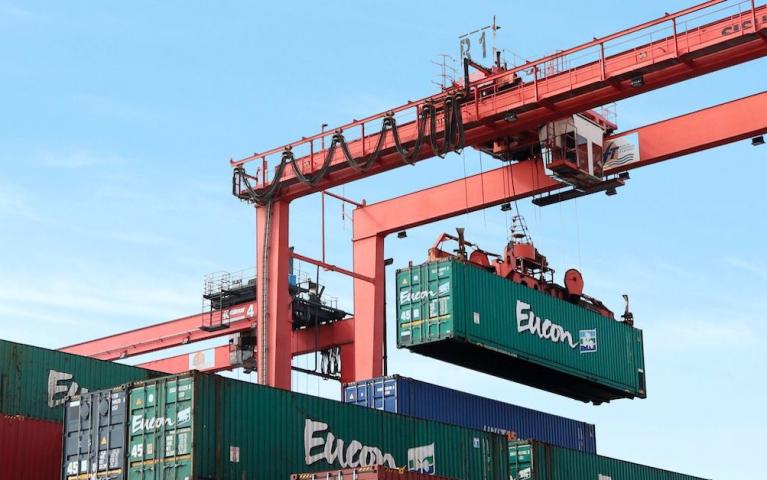

Ireland to UK Customs Clearance Service
Don't have the time to be worrying about Customs Clearance? Ace Express Freight have everything in place to ensure your imports and exports to and from the UK keep running smoothly.Customs Clearance Agents - Ireland to UK
All freight movements between the UK & the EU are now subject to customs procedures. We have invested significant time and resources to ensure we can provide a seamless post-Brexit service to each and every customer.
Customs Expertise235K
Square feet of warehousing with bonded facilities.31yrs
Of global Customs Clearance expertise.A.E.O
Authorised Economic Operator status.T1
Transit capabilities for goods under bond.Customs Checklist
Do you need some help to adapt your customs procedures post-Brexit? We have created a simple step-by-step Customs Checklist to guide you through the process. Just follow the steps below or email our team at customs@ace-express.com and we'll explain everything.

1. Assign Ace Express Freight as your Customs Broker.
First thing's first. Please allow us act on your behalf as a Customs Representative by completing our online Direct Representation Form. It only takes a few minutes and once you're signed up we can take care of all the hard stuff.

2. Make sure you register for an EORI Number from Revenue.
You will need an EORI Number for both imports and exports. Go to the Revenue.ie website and get signed up for your EORI.

3. Authorise Ace Express Freight to make Customs Tax & Excise Duty Payments.
Once you have your EORI number you will be assigned a Trader Account Number (TAN). This is a secure channel through which you can make customs tax and excise duty payments. You can authorise us to use your TAN by simply completing a Customs and Excise Clearance Agent Form at the link below.

4. Commercial Invoices, Packing List, Licenses & Certificates
To enable us to complete a Customs Declaration on your behalf you will need to provide a Commercial Invoice, along with any Licenses or Certificates. Download our Commercial Invoice Template and we'll guide you through the rest.

5. Understand terms such as Value, Incoterms, Origin, Gross, Nett Weight & Commodity Codes.
The importer needs to know the value of goods for trade stats and calculation of VAT/Duty. Both Importers & Exporters will need to know the origin of goods and the goods gross and nett weights, which form part of the Customs Declaration. Find out what all these terms mean and how to assign them at Revenue.ie.

6. Find out more about Incoterms to help prepare Customs Declarations.
Post-Brexit, the relevancy of Incoterms has increased substantially, therefore you should get to know the underlying regulations and ensure you agree to them. The Incodoc Global Trade Guide explains everything.

7. Download our Brexit Toolkit for more information.
We've prepared a simple and practical Brexit Toolkit to guide you through the Brexit process. Download our Toolkit at the link below.
